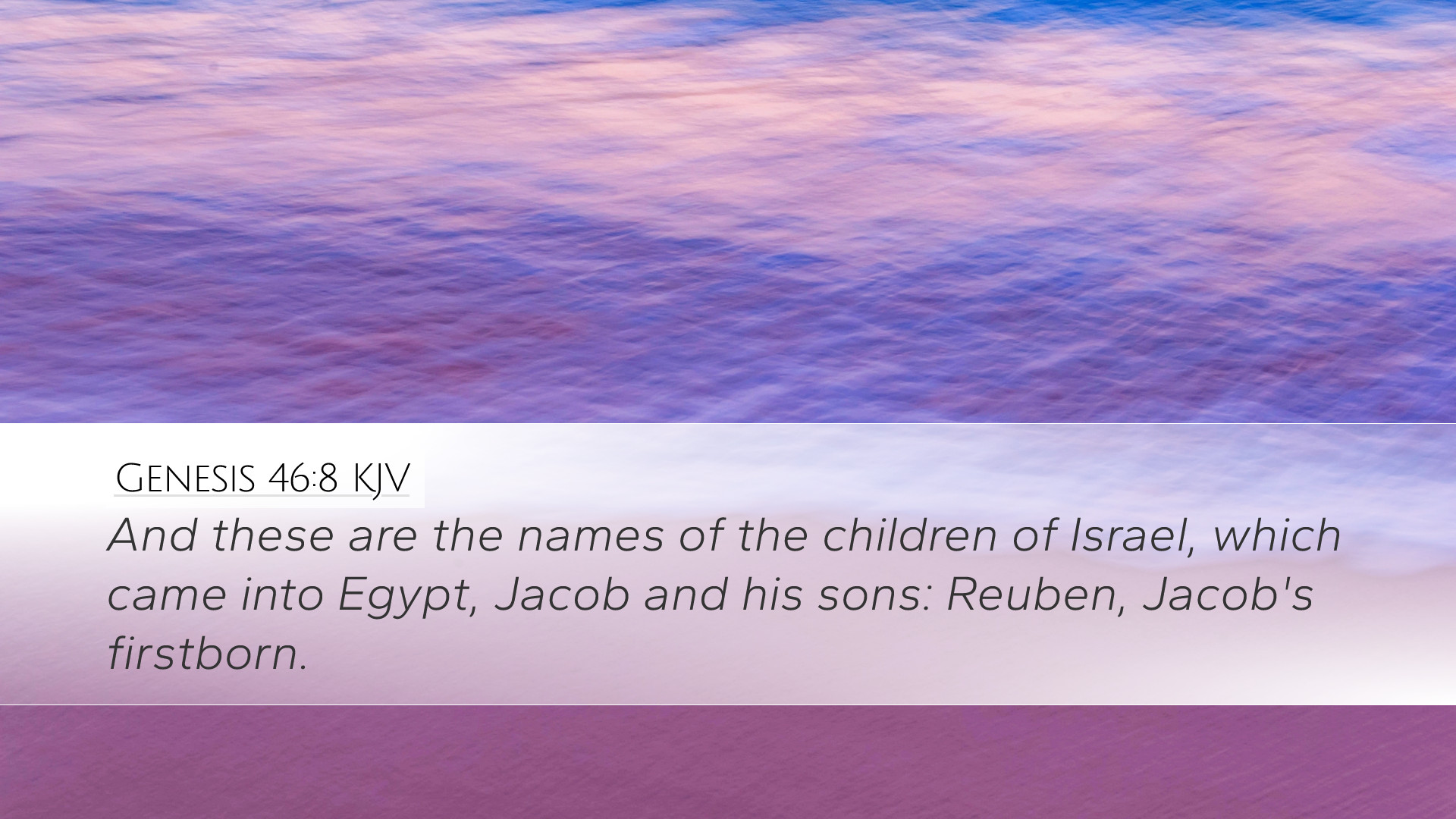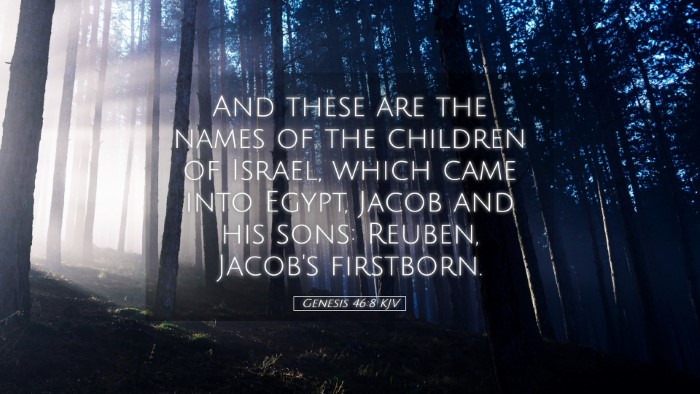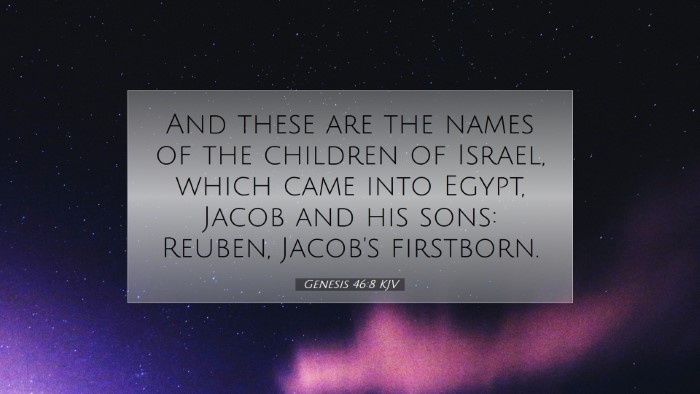Commentary on Genesis 46:8
Verse Reference: Genesis 46:8 (KJV): "And these are the names of the children of Israel, which came into Egypt, Jacob and his sons: Reuben, Jacob's firstborn."
Introduction
This verse signifies a pivotal moment in the biblical narrative where the lineage of Jacob, also known as Israel, begins to assume greater importance as they transition into Egypt. The mention of Jacob’s sons' names is not merely a genealogical record but rather a profound reflection of identity, heritage, and divine purpose.
Contextual Background
To appreciate the full significance of this verse, it is crucial to understand the preceding events leading to this migration to Egypt. Jacob's sons played central roles in the unfolding of God's covenant with Abraham, Isaac, and Jacob. This chapter captures the culmination of a significant family reunion under dire circumstances, where famine drives them into the land of Egypt, setting the stage for subsequent events in Exodus.
Insights from Public Domain Commentaries
Matthew Henry’s Commentary
Matthew Henry notes that this verse serves to highlight the fulfillment of God's promise to Jacob. He asserts that the journey into Egypt is both a refuge from famine and the beginning of a period of opportunity and challenge. The specific naming of Reuben as Jacob’s firstborn is significant. It underscores the importance of order within the family structure, as each son carries not just his name but the destiny of the nation of Israel. Henry emphasizes the divine providence that leads Jacob down to Egypt, reflecting God’s faithfulness to his promises.
Albert Barnes’ Commentary
Albert Barnes adds that the naming of Jacob’s sons lays the foundation for the Israelite nation. He describes this moment as one filled with anticipation and perhaps foreboding, as the family's entry into Egypt marks the beginning of a new chapter. Furthermore, Barnes points out the highlighted role of Reuben, reinforcing his status but also hinting at the complexities of his character and actions in later narratives. Barnes calls attention to how this migration fulfills the promise given to Abraham that his descendants would be as numerous as the stars and the land which would sustain them.
Adam Clarke’s Commentary
Adam Clarke elaborates on the genealogical significance of Jacob’s sons. He illustrates how these names indicate not just family ties but also the future tribal divisions within Israel. Clarke stresses that the individual stories of Jacob’s sons are crucial for understanding the collective identity of the Israelites as they navigate their identity in Egypt. He further contemplates the tension of being in a foreign land while being assured of God’s covenant promise, which is foundational for theological reflection on the nature of God’s people being in exile yet preserved.
Theological Implications
The genealogy in Genesis 46:8 serves to correct and form a coherent narrative of God’s elect by linking the present Israelites back to their patriarch Jacob. It stands as a reminder to scholars and theologians of the significance of lineage in understanding God's plan throughout biblical history. Furthermore, the verse brings forth themes of:
- Identity: The names invoke a sense of belonging and identity that resonates through the ages as they evoke God’s plans for the descendants of Abraham.
- Providence: The divine orchestration of events that leads to their settlement in Egypt, which ultimately paves the way for their deliverance.
- Covenant: The importance of the covenant promises that underscored their existence and guide their identity as a chosen people.
- Exile and Preservation: The paradox of living in a foreign land while holding onto the promises given to their forefathers.
Conclusion
Genesis 46:8 serves as a crucial linchpin in the narrative of Israel's heritage. It invites pastors, students, and theologians to consider the intricate connections between family lineage, divine promise, and the unfolding story of God’s people. The insights from Matthew Henry, Albert Barnes, and Adam Clarke provide profound guidance for reflecting on the themes presented in this simple yet loaded verse. These themes resonate deeply in the Christian faith, inviting further exploration of our own identities as God’s children within the covenant community.


